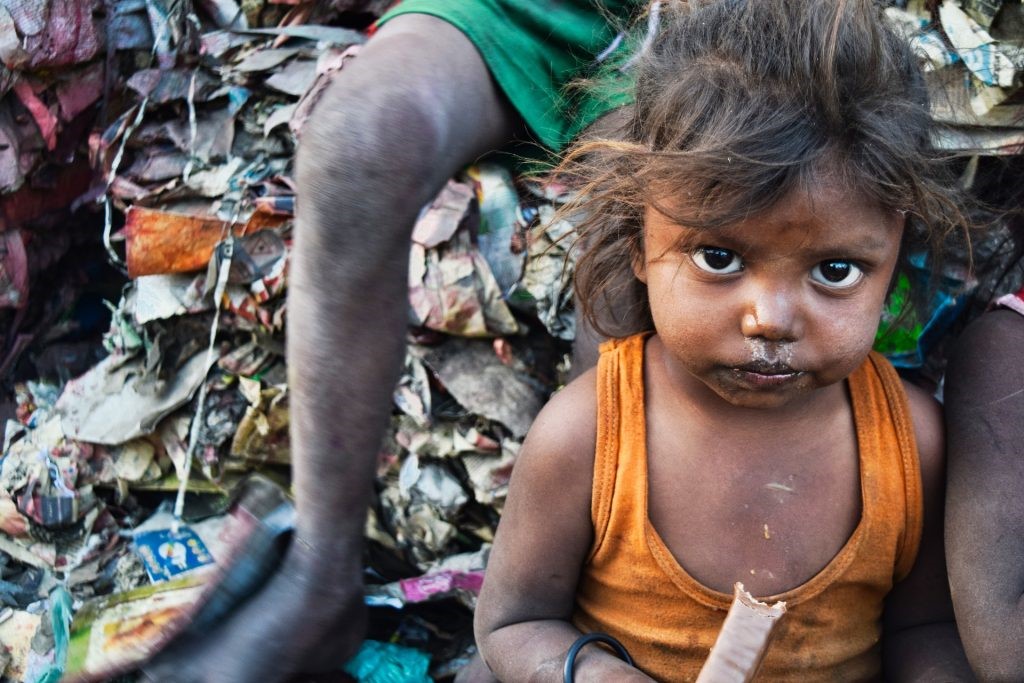The global hunger crisis, which affects 811 million people worldwide, including millions of girls, children, and women, must not be overlooked. According to Stephen Omollo, CEO of global child rights and gender equality NGO Plan International, if the world does not pay notice, the 811 million people battling to find food in the world’s poorest locations will become a forgotten statistic. The media spotlight on Ukraine, according to Omollo, must be widened to bring the rising global hunger problem out of the shadows, a disaster that affects more people than Europe’s total combined population. It will be too late if resources are not raised.
When it comes to all crises, humanity must triumph — from the horrific events in Ukraine to the world’s tragic hunger crisis. From Lebanon to Somalia to Niger, millions of people are unable to feed themselves and their families on a basic level. As the horrific conflict in Ukraine worsens, one of the aftershocks has been a quick rise in food and fuel prices, which will only exacerbate the worldwide hunger crisis. Time is running out for millions of children living in hunger hotspots throughout the world as food supply chains stagnate and prices rise at a rate not seen in decades.
According to Plan International, hunger has reached a critical juncture. If life-saving humanitarian aid is not quickly increased, 300,000 people could die of starvation every day. As a result, humanitarian organizations are forced to choose between feeding the hungry and feeding the needy. Immediate action is needed. With the rising costs of food and gasoline, there is now a genuine possibility of cuts to life-saving humanitarian aid at a time when it is most needed. It is crucial that donors do not cut funding at this critical time.
According to UN estimates, 350,000 children in Somalia are now on the verge of hunger. It is expected that portions of the country would face hunger within weeks unless humanitarian help is promptly increased. Even before the conflict in Ukraine, the worldwide hunger crisis has been rapidly deteriorating in recent months as a result of rising food costs, continuous conflicts, climate shocks like as floods or drought, and the COVID-19 pandemic. The situation has now reached a critical point. While a recent pledging event in Geneva for the Horn of Africa is believed to have garnered $1 billion, several humanitarian organizations believe this is an overstatement — and all agree that additional financing is needed.
811 million people are food insecure, and 45 million are on the verge of starving, suffering emergency levels of hunger, or worse. Famine or famine-like circumstances are likely in the hardest-hit areas. At least 45 million children suffer from wasting, the most obvious and severe form of malnutrition that can be life-threatening. That’s almost the same as Spain’s total population. Children too young to walk survive on one meal a day, often less, in the world’s poorest countries. Entire classrooms are empty because pupils are too hungry to attend class, and some families are unsure what or when they will eat next. 204 million students are currently missing out on meals as a result of school closures alone.
If immediate action is not taken, it will be too late to prevent catastrophic suffering on a global scale, since we are on the verge of a major disaster. Hundreds of millions of youngsters in dozens of nations are suffering from hunger. For the people affected by the conflict in Ukraine, the international community should pay attention to the current hunger crisis and treat all individuals in humanitarian situations equally. Everyone has equal rights and must be shown the same compassion, both children and families caught up in these calamities and that includes aid organizations, donors, and supporters.
According to Omollo, children, particularly girls, are disproportionately affected by the food issue, with women and girls accounting for 70% of the world’s hungry. Girls eat less and eat last when food is scarce. Girls are more likely than boys to be taken out of school when families and communities become more stressed, putting them at risk of child, early, and forced marriage, gender-based violence, sexual exploitation, and unwanted pregnancy. Adolescent girls in Burkina Faso, Mali, and South Sudan are more inclined to marry at a young age if their families are struggling financially. Girls and women fleeing the fighting in Cabo Delgado, Mozambique, have had to turn to sexual exploitation to make ends meet, sometimes for as little as US$0.16.
Investment in predictive action must be taken into account. Waiting for a famine to be declared is accepting the fact that people will die. Before it becomes a catastrophic situation, total concentration should be paid on food security. According to Plan International’s experience, food insecurity can have disastrous implications for girls’ education. In many countries, girls are already less likely than boys to attend school, and when families are hungry, girls are increasingly expected to care for younger siblings so that their parents can work or seek food. Girls are frequently compelled to miss or drop out of school, jeopardizing their future chances and exposing them to gender-based abuse and harmful practices such as early marriage and female genital mutilation/cutting.







